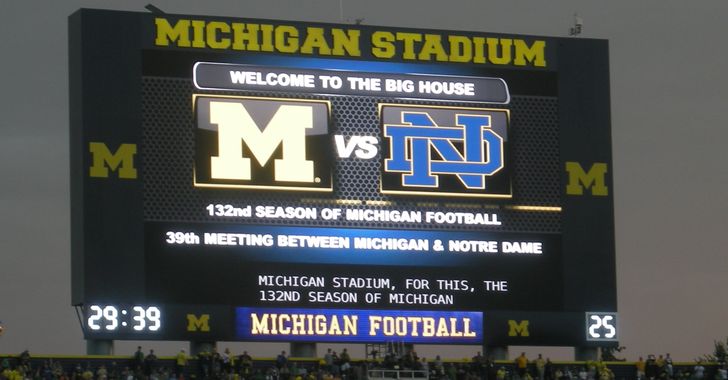Recently, the National Archives hosted a woman's suffrage exhibit at the museum in Washington, D.C. A large photo opens the exhibit with a dual photograph of the 2017 Women's March viewed from Pennsylvania Avenue and a similar photo of a 1913 march on Pennsylvania Avenue. The dual image is meant to symbolize the ongoing struggle of women.
But the National Archives received backlash for altering the 2017 photograph. Any words that were derogatory towards President Trump or referencing women's anatomy were blurred out of the exhibit. Officials claimed this was in an attempt to keep the exhibit non-partisan, as the National Archives is a non-partisan federal agency. Words referring to women's anatomy were blurred in an attempt to censor the exhibit for student and youth visitors.
The Archives claimed that blurring out the word "Trump" did not alter the intention of the photograph.
It seems as if the Archives is intentionally ignoring the reason behind the 2017 Women's March.
The march was in response to how our country elected a president who had been so openly sexist and derogatory towards women. It was not an uproar about the general struggles women face. The march was placed on January 21, 2017, the day after Trump was elected, in protest. Trump has been accused of multiple sexual assaults and during the 2016 election, an audio recording was published on which he brags about grabbing women nonconsensually. We, as the American public, can't also forget the way Trump described Hillary Clinton as angry in the debates in an attempt to belittle and discredit her. Women gathered on Pennsylvania Avenue to show that accepting this culture would put feminism back years.
Thinking about the nature of the 2017 Women's March, the National Archives attempted to blur Trump's name to keep the women's suffrage "non-partisan."
But women's issues have never been a non-partisan issue.
From reproductive rights to the Equal Rights Amendment, the GOP has been on the front lines of blocking equality and reversing great strides. Women's right to an abortion is slowly taking steps backward in the Republican-controlled South and the Equal Rights Amendment is voted on along party-lines. Miriam Klieman, the archives spokeswoman, said the two images were put together "to illustrate the ongoing struggles of women fighting for their interests." Today, women's interests are fought for and won against Republican efforts.
To create a new narrative for the Women's March is a blatant attempt to rewrite history in the government's favor.
This action seems too close to the book "1984" for comfort. In "1984," the Ministry of Truth rewrote history to keep the current political party in control. The party slogan read, "Who controls the past controls the future: Who controls the present controls the past." Attempting to frame the Women's March as not in protest to Trump or the Republican Party allows both of these entities to look less opposed to women's interests in the future, making them seem more innocent than they are.
For comparison, think about if another part of history was rewritten to make issues appear different than they were. In recent years, textbook authors have received backlash for implying that slaves came over to America as economic migrants or workers, insinuating that the slaves were doing voluntary work. Not only does this make America look innocent in a clear crime, but it belittles the plight of slaves and the struggles of African American citizens. While slavery is far different than second and third-wave feminism, America should not be pardoning itself for its crimes.
The National Archives is meant to document history for the American public to understand and learn from the world around them. Full transparency is the key to progressing as a society. However, the American government, specifically Trump and the GOP, does not seem to want to be held accountable for its actions. Between "1984" and "The Handmaid's Tale," modern America is looking closer and closer to a dystopian novel.







 Photo by
Photo by 









































